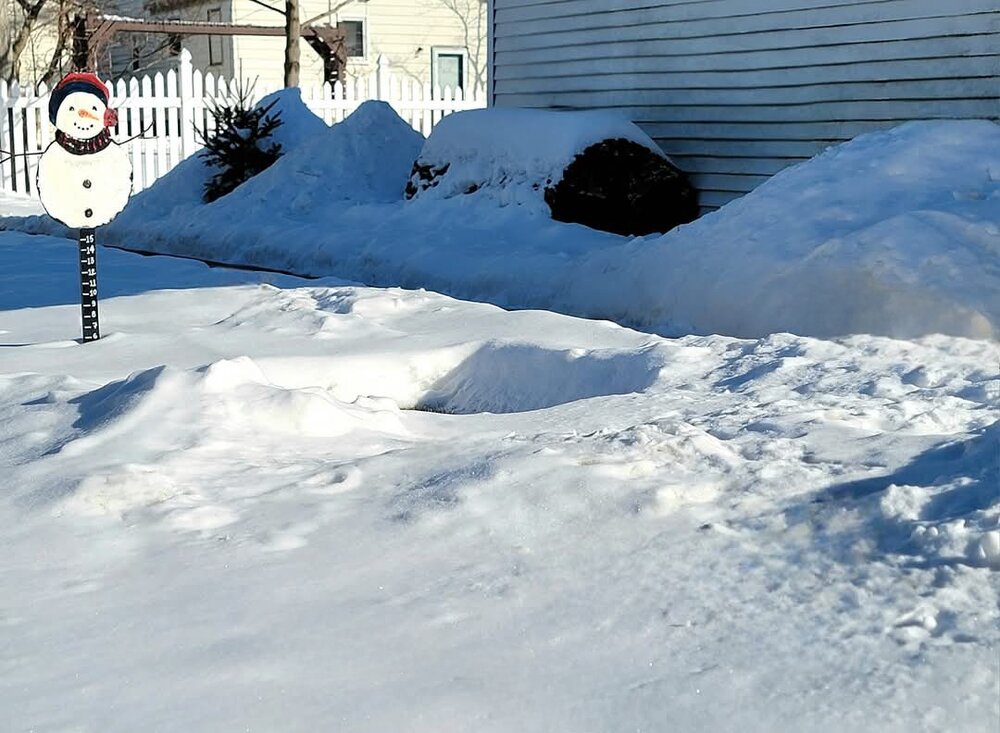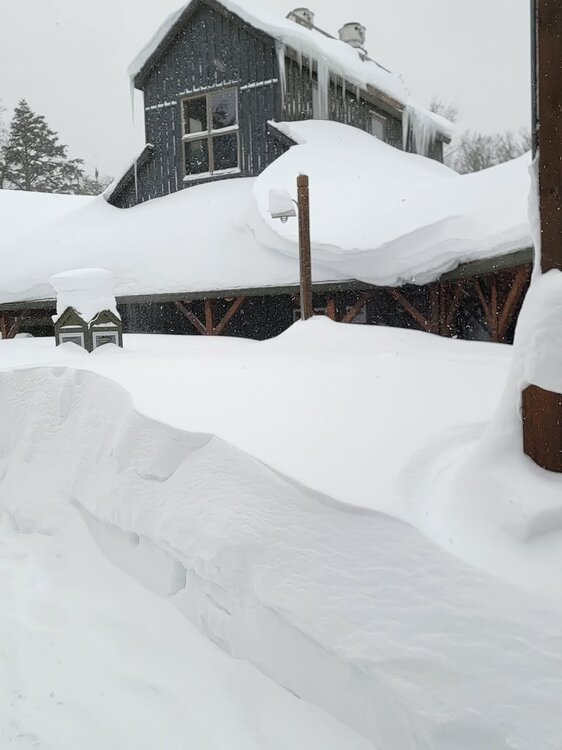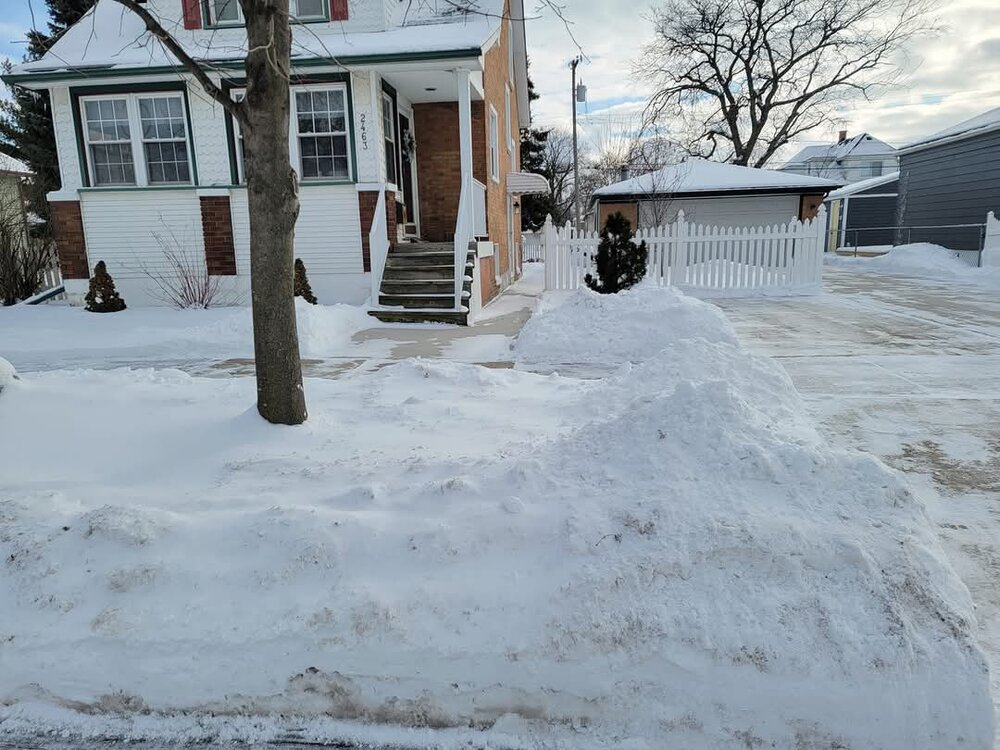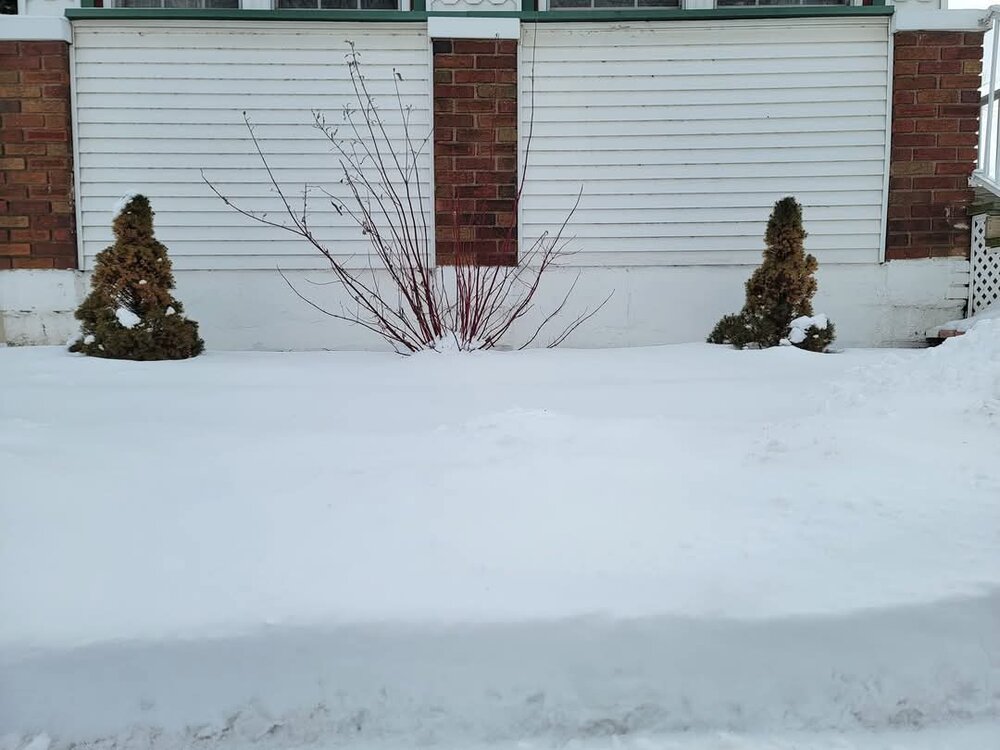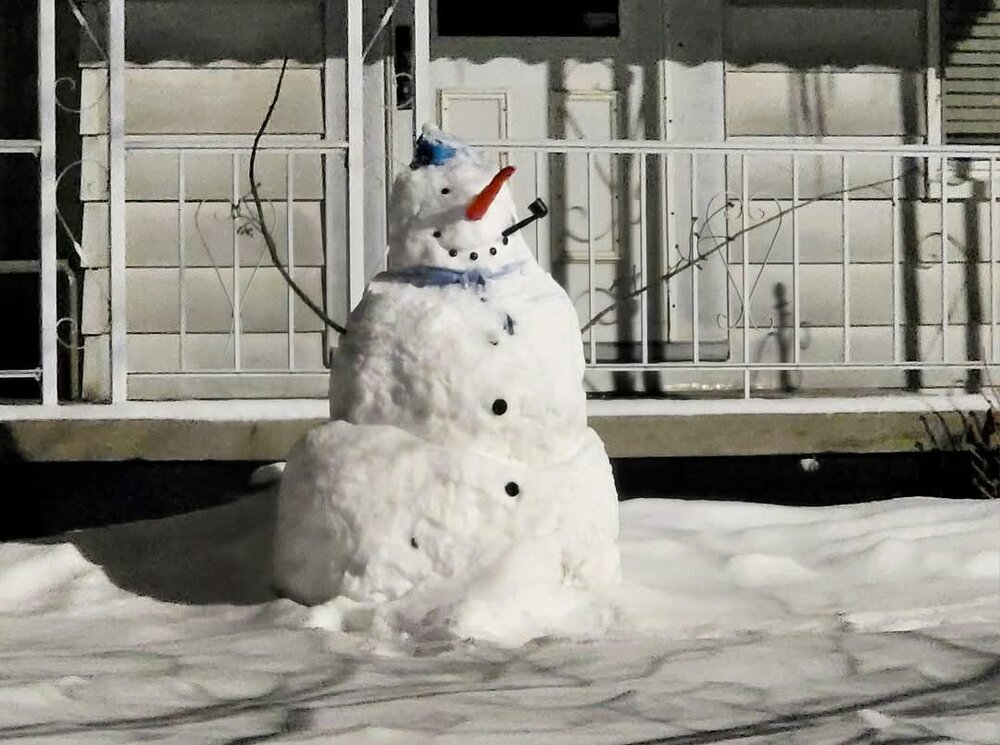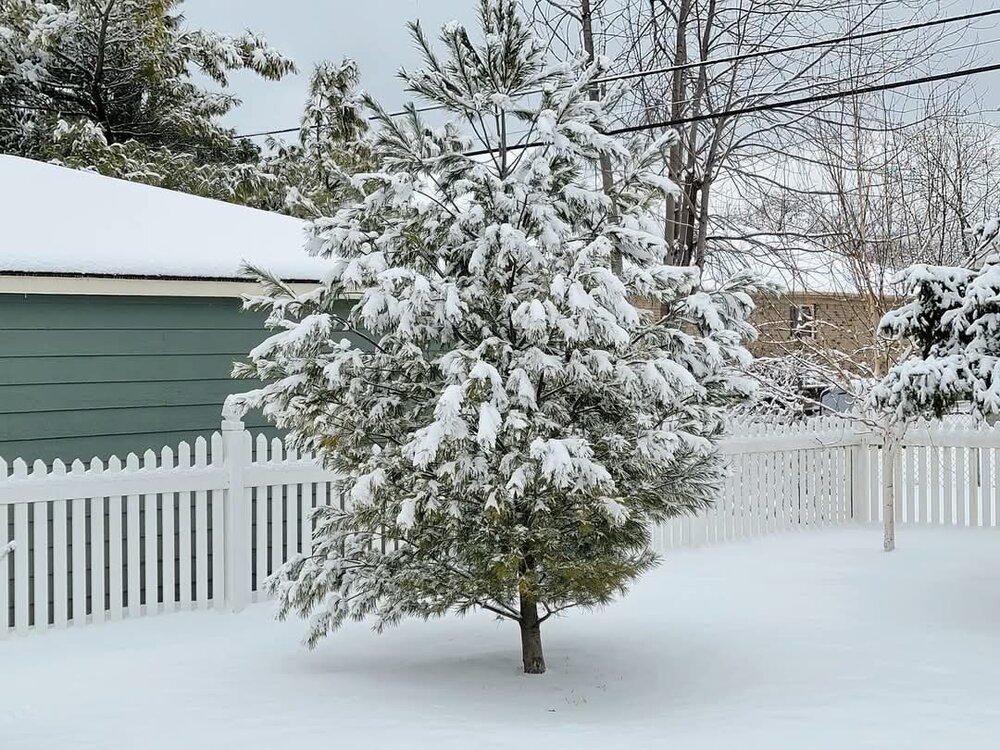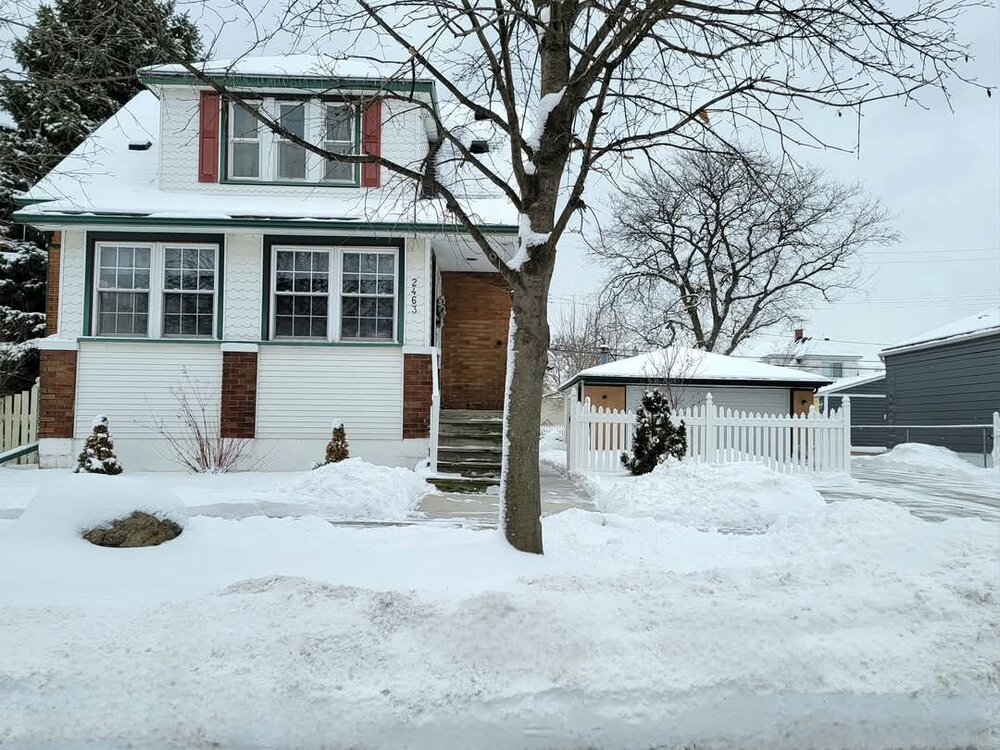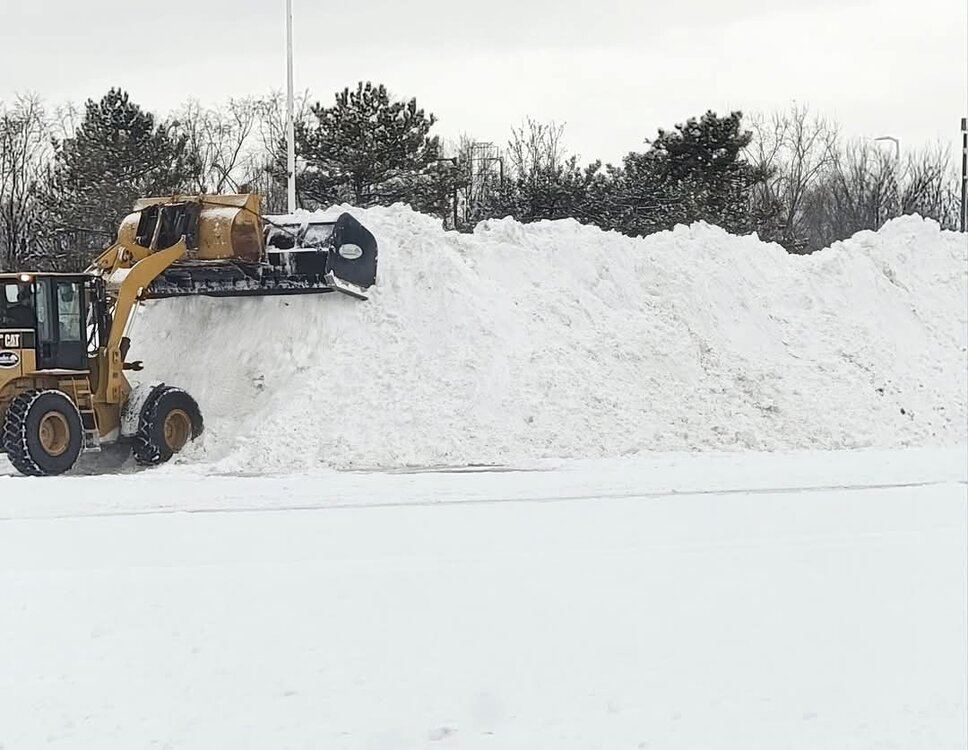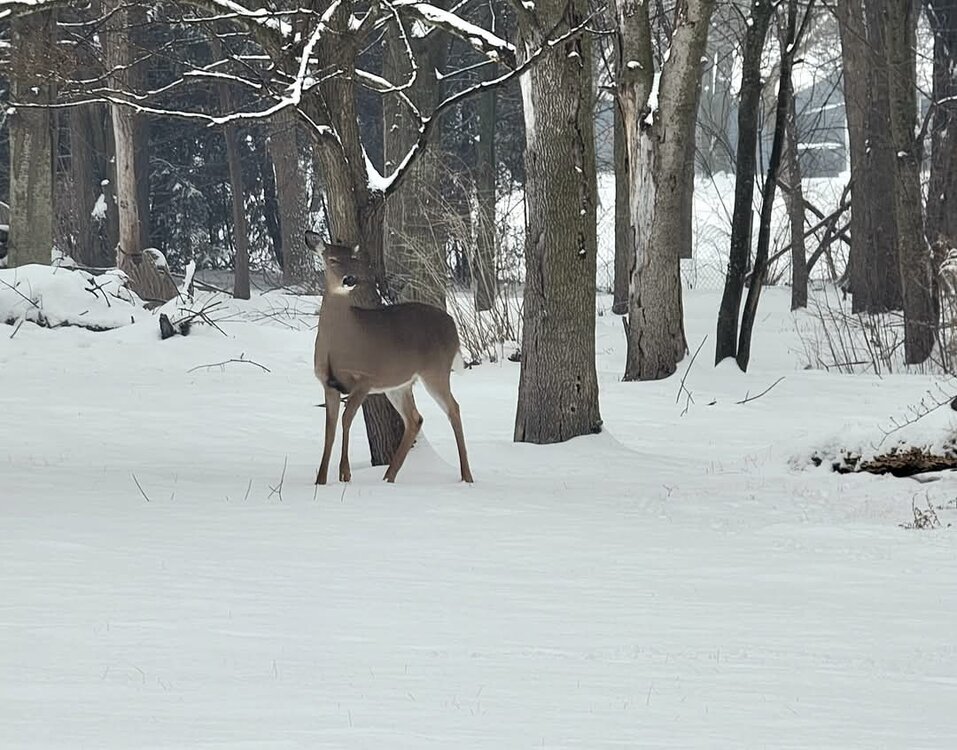-
Posts
17,983 -
Joined
-
Last visited
Content Type
Profiles
Blogs
Forums
American Weather
Media Demo
Store
Gallery
Everything posted by michsnowfreak
-

Fall/Winter '24 Banter and Complaints Go Here
michsnowfreak replied to IWXwx's topic in Lakes/Ohio Valley
Plenty of winter fun for me this season. From a nice blanket of snow/bitter cold when cutting down the Christmas tree to multiple hikes/sleddings/shovelings/photo ops/etc in Jan & Feb. That's not even taking into account my fun trip up north. In some recent mild winters, some have remarked that the snowfall total has looked "misleading" because it makes the winter look better than it was. I do see their point, but that's why I always say that's why there's stats for temps, liquid, snowfall, and snow depth. However using that logic I must say this is the first winter in I can't remember how long that the snowfall total makes it look worse than it's been. Plenty of cold, snowcover, and outdoor winter things to do for a winter that DTW has only logged 26.0" of snow thru 2/23. -
Haha and they love it. They "only" had 80" last winter and expect to crack 300" this winter. They are smack dab in one of the biggest Lake Superior snowbelts and it's their livelihood.
-
Still have a nice snowpack in SE MI. My season to date snowfall sits at 26.9" with 26.0" at DTW. Have definitely made the most out of the snowfall in terms of days with snow on the ground.
-
Had a great time up north. Snow deep everywhere, but especially in Paradise where it was 3 feet deep
-

Winter 2024-25 Medium/Long Range Discussion
michsnowfreak replied to michsnowfreak's topic in Lakes/Ohio Valley
It was march 1 1900 -
Up In Paradise on the shores of Lake Superior. The entire 5+ hour drive from home to here was a gorgeous winter wonderland of thick velvetty blanketed snow. Absolute deep winter throughout the entire state of Michigan! @beavis1729would love it. Actually was colder this morning (0 to below) in Detroit than up here (5-10 with LES). Several feet on the ground up here. Will send a few pics when I get home!
-
Had another 0.4" overnight. More lake squalls and blowing and drifting snow. Going to the upper peninsula for a few days of deep winter fun. This would be a fantastic beavis trip because from the entire drive from metro Detroit to the shores of Lake Superior is a beautiful thick blanket of white. Pics at home before leaving.
-
After a snowy week the bitter cold sets in. Arctic winds and blowing snow going on outside. Love winter nights lile this. With the combination of several snowfalls there are huge snowbanks everywhere. Even though the avg high has crept up to the mid 30s, its deep winter.
-

2/14-2/15 Potential Major Winter Storm
michsnowfreak replied to A-L-E-K's topic in Lakes/Ohio Valley
Just a dusting of lake effect snow here but no complaints. It looks like deep winter. -

2/14-2/15 Potential Major Winter Storm
michsnowfreak replied to A-L-E-K's topic in Lakes/Ohio Valley
Wow is that deepest in your memory? Post pics! -

2/14-2/15 Potential Major Winter Storm
michsnowfreak replied to A-L-E-K's topic in Lakes/Ohio Valley
3.2" today after 1.6" yesterday. So two day total 4.8" (season to date 25.5"). DTW had 3.0" today with 2 day total 4.6" (season to date 24.6"). Had already prepared for a bust when going to bed, so enjoyed waking up to a beautiful winter scene. Snow depth is a heavy 7" and lots of large snowbanks everywhere. Definitely deep winter.- 711 replies
-
- 10
-

-

2/14-2/15 Potential Major Winter Storm
michsnowfreak replied to A-L-E-K's topic in Lakes/Ohio Valley
5-7" for eastern counties. This is on top of a solid snowpack and big snowbanks already around. For all the talk of what a shitty winter it's been for many, it's gonna look pretty damn deep winter here. I'm actually going to the UP mon-thu so my week will be full of snow lol. Lessened qpf aside, one thing I like is that deformation zones often can overperform and have high ratios. -

2/14-2/15 Potential Major Winter Storm
michsnowfreak replied to A-L-E-K's topic in Lakes/Ohio Valley
We got 1.6" with round one. It's very heavy with mist and drizzle afterward. Snowpack is now a very heavy 4-5". DTX going warning for far eastern counties tonight and tmrw for 5-7". Had someone watching me when I was at the park earlier... -
Awesome! Thank you!
-

2/14-2/15 Potential Major Winter Storm
michsnowfreak replied to A-L-E-K's topic in Lakes/Ohio Valley
Snowing very nicely here with round 1. -

2/14-2/15 Potential Major Winter Storm
michsnowfreak replied to A-L-E-K's topic in Lakes/Ohio Valley
There was a Plains like and obviously forgotten blizzard warning Feb 11, 2003. 2" of snow and 60 mph winds. -

2/14-2/15 Potential Major Winter Storm
michsnowfreak replied to A-L-E-K's topic in Lakes/Ohio Valley
Feb 2021 is the last time a 6"+ storm came on top of 6"+ snowcover -

2/14-2/15 Potential Major Winter Storm
michsnowfreak replied to A-L-E-K's topic in Lakes/Ohio Valley
For sure. But most winter storms create that effect, with plenty of wind and drifting. Blizzard is 3+ consecutive hours with sustained winds of 35mph+ and visibility at or below a quarter mile. Many blizzard warnings that are issued do not technically verify, even though they feel like a blizzard. -

2/14-2/15 Potential Major Winter Storm
michsnowfreak replied to A-L-E-K's topic in Lakes/Ohio Valley
I couldn't care less about a blizzard warning. I care about storm total snowfall lol -

2/14-2/15 Potential Major Winter Storm
michsnowfreak replied to A-L-E-K's topic in Lakes/Ohio Valley
DTX has issued a Winter Weather Advisory for tmrw then a Winter Storm Watch for tmrw night/Sunday. -

2/14-2/15 Potential Major Winter Storm
michsnowfreak replied to A-L-E-K's topic in Lakes/Ohio Valley
Definitely good with nickel/dime/winter...love it...but that doesnt mean i dont want a big one too! -
There is some sparse data and journals and stuff that you can piece together what type of winter it was, but certainly not enough to get accurate or even semi-accurate precip/snow/temp data. I have studied it when I have spare time (often in the weather "off season" of summer lol) and have a document that I jot notes down, plus theres David Ludlum books that details things. But im nowhere NEAR done studying them. Honestly, it appears that the overall jist of winter over here (Detroit) was very similar to it is now, although a likely colder climate overall. Some winters were harsh and others were not. The 1830s to mid 1850s seemed to be dominated by mild, dry, "open" winters, though with exceptions of course (a HUGE exception being 1842-43). Then the mid 1850s to 1860s seemed to have a lot of harsh winters, tho again, with some exceptions. Notes of "easy" winters: 1846-47 (wheat crops destroyed due to open winter) 1847-48 (small quantity of snow fell, open winter; wheat damaged) 1849-50 (quite mild and snowless; only 1 day of sleighing as of Jan 28) 1852-53 (open winter, very dry) 1858-59 (crops likely damaged due to open winter) 1859-60 (wheat damaged somewhat due to open winter) 1860-61 (no ice on any river on any account, open winter) Notes of "severe" winters 1842-43 (most severe winter ever known; snowcover nov 17-apr 8) 1854-55 (open winter until deep snow late Jan, then it got the deepest since 1842-43) 1856-57 (houses suffered the rigors of the severe winter)
-
~4" depth here but should have more those weekend. Then I go to the U.P. next week so I'll be enjoying plenty of snow.
-
Thanks. DTW is at 19.8" so far. Avg for entire season is 41" (longterm) to 45" (current 30 year normals). This winter is unlike any we've seen in a long time. I found a few in the 1940s & 1960s similar. It's dominated by cold and dry and despite snowfall being below avg, there's been some presence of snow on the ground pretty much since New Year's (except for a dew days) but it's not yet reached 5" deep. Even late Nov to just before Christmas had many days of T-1" on the ground.
-
Technically the Jan 10/11 event saw 3.7" at DTW (3.9" here) edging out this event (3.6" DTW, 3.7" here). The difference being the Jan 10/11 was a a 2-3" event for most of metro Detroit with a small lollipop of 3.5-4" from downriver thru downtown. This event was a more widespread 3-4" event with the highest totals of 4-6" in the northeast suburbs. In a winter full of pennies and nickels, nice to have a few dimes.


